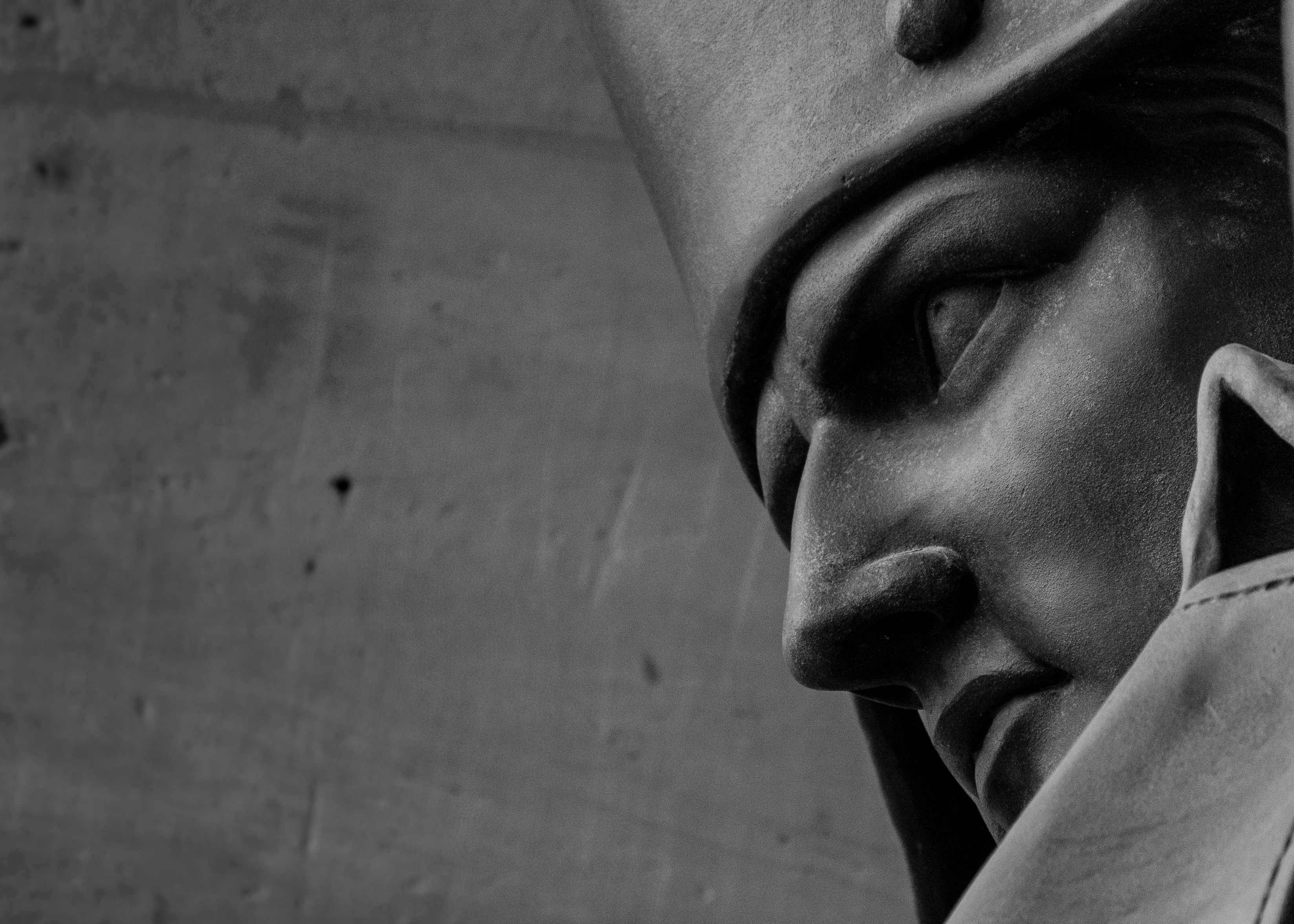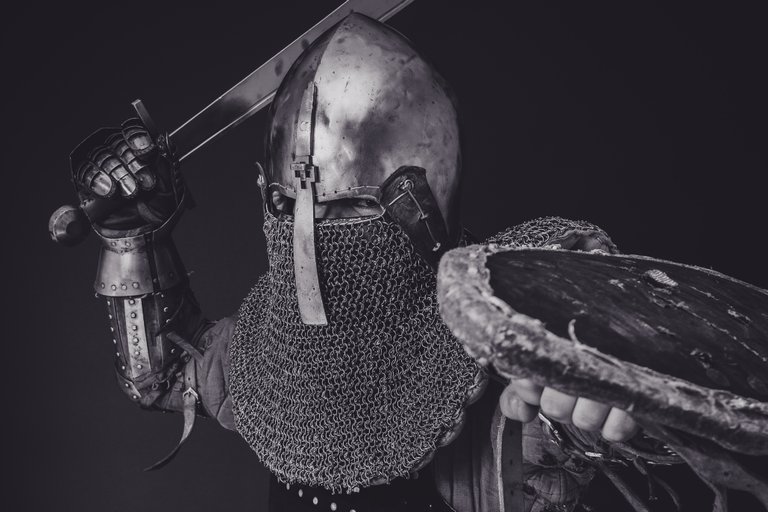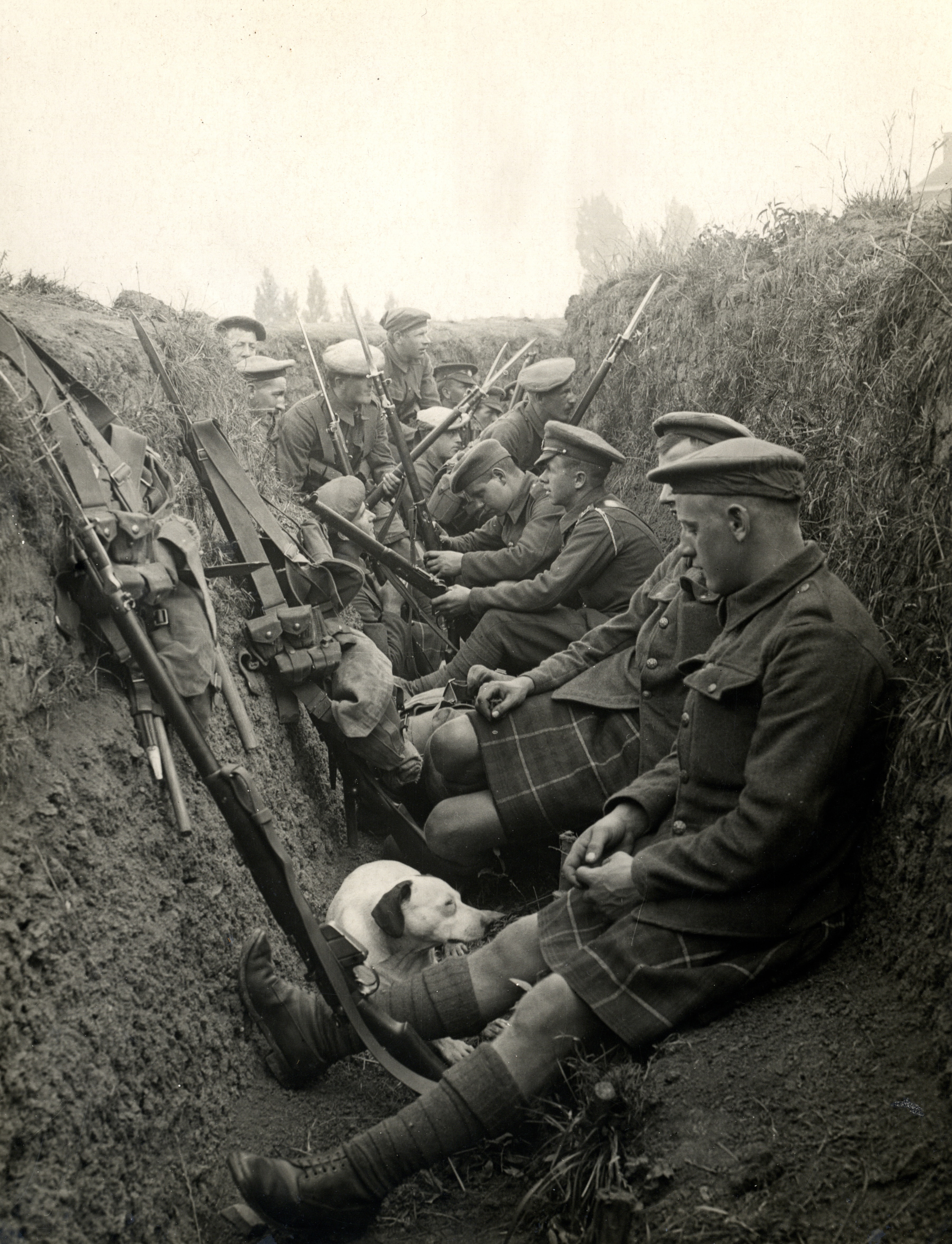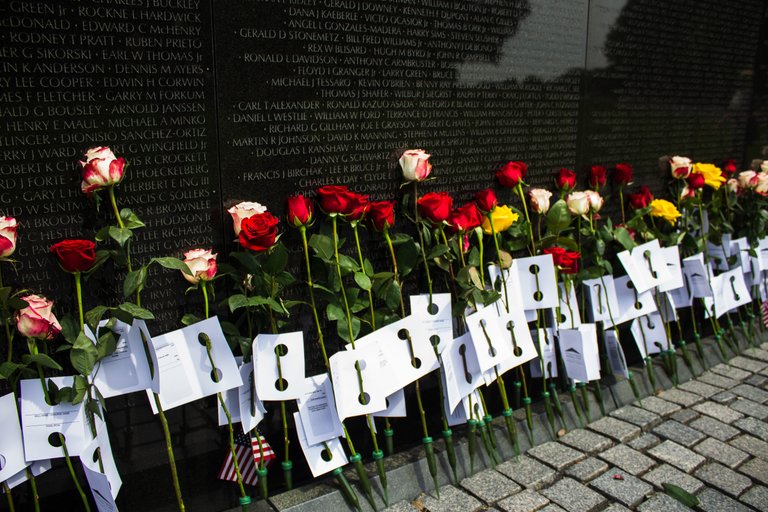What makes someone a great man? Who are those that history remembers as the most important figures in our past? Mostly a bunch of warmongers who rose to fame on other people’s blood. I went to see Ridley Scott’s ‘Napoleon’ mainly because my teenage son had expressed his interest. The ever-present voice in my head thought it was good for him to learn something about an important figure. As the movie moved from one blood-drenched battle scene to another I started thinking just how distorted our perceptions are. Napoleon is but another in a long line of self-styled world conquerors populating the Hall of Fame of human history. If you think about great leaders, what names come to mind? Caesar, Alexander the Great, Genghis Khan? All known for their conquering appetite.
 Source Napoleon' statue at the Hotel des Invalides in Paris, where his body was buried decades after his death in exile. The once detested leader had been deemed worthy of the history book
Source Napoleon' statue at the Hotel des Invalides in Paris, where his body was buried decades after his death in exile. The once detested leader had been deemed worthy of the history book
The countless books written on such people commend their bravery, great strategic thinking, battle tactics, etc. Yet, ordinary people like me and you know next to nothing about strategy and war tactics. We are fascinated by these great men because they were successful. We rarely pause to think about the costs. At the end of the movie, just before the credits, Ridley Scott presents a tally of Napoleon’s success - the number of soldiers killed in the battles that earned him his reputation. Hundreds of thousands of them. I doubt that Ridley Scott would have had much success with producers pitching a movie about an ordinary guy, a poor schmuck called Francois or Antoine, who died in the battle of Austerlitz. Did he at least have some interesting back-story, a passionate romance or anything, the producers would have asked. Nope, he was barely 19 and his life had been all about milking cows before he joined Napoleon’s army. Would you see an almost three-hour movie about someone who is not even a footnote in the great book of human history? Guess not.
 Source The fearless warrior in our imagination
Source The fearless warrior in our imagination
We are fascinated by warmongers and war in general. No matter what country you are in, when it comes to some important war in local history we are trained to think in very specific terms. The war was “great” and those who fought in it are described as brave, fearless, patriotic, heroic, bold and courageous. Such words are inscribed on the thousands upon thousands of war memorials decorating our landscapes. We like to imagine our ‘men and women in the military” as dying a heroic death, instead of them being scared out of their minds. It wouldn’t do if the inscription on the Tomb of the Unknown Soldier said the poor guy wet his pants when he saw the attackers charging. There’s one scene in the movie when Napoleon orders his infantry forward during the battle of Waterloo. There are dozens of books about that campaign that led to Napoleon’s downfall and experts probably discuss the French emperor’s use of his infantry. Except that his infantry was made of people, thousands of people whose death warrant the emperor signed when he ordered them forward. The camera does capture the gore on the battlefield, but the focus is still on Napoleon. His fate was decided there. Forget the thousands whose fate was also decided there.
 Source Scottish soldiers deployed to France in 1914. How many would you say lived to father cannon fodder for WW2?
Source Scottish soldiers deployed to France in 1914. How many would you say lived to father cannon fodder for WW2?
(Sadly, such battles are not a thing of the past. When you read the next article on some battle on the Ukrainian front, just think of the boys and men wetting their pants when they realize they're doomed. On both sides.)
As it happened, today’s news is the death of Henry Kissinger, another man who earned a page in the great book of history much in the same way. Most obituaries I’ve read use at least the term controversial and only few go as far as saying that some consider him a war criminal. Yet, his name will endure, whereas the estimated 3 million who died as a result of his strategic advice won’t get as much as a footnote in history manuals. Once again, we have a success story - the poor kid who fled Nazi Germany to become a political mastermind in Washington. Not as impressive as the unknown Corsican boy who became Emperor of France, but still.
 Source Vietnam War Memorial in Washington DC
Source Vietnam War Memorial in Washington DC
I wonder if we could change something by teaching children history in terms of the destruction all these great figures caused? For instance, when they mention in the movie that Napoleon is at Austerlitz a light went up in my brain. “Oh, the great battle of Austerlitz, I’ve heard about that”. What if the episode would be taught as the great massacre at Austerlitz? How about the bloodbath of Waterloo? Or, why not, the slaughter of Iwo Jima? By remembering the skills of the military leaders and the bravery of those who fought under them we only reinforce the absurd fascination we have with wars. Earlier today, there were tanks and armored personnel carriers rolling down my street. They’ve been doing that for a few days now in preparation for our National Day tomorrow. I know, Romania is not a military power, but still this is the most fitting way we’ve found to celebrate our most important day. This is what defines us - tanks, helicopters, fighter jets. In their festive speeches tomorrow, our leaders will probably mention those who fought bravely for their country, with no mention of any wet pants of terrified youngsters fighting for their lives. Worst of all, many families will take their kids to see the military parade. They do that every year no matter the weather. 'Just look at those fine soldiers, boy!' Another generation being taught that war is great.
P.S. - Definitely not impressed with the movie.